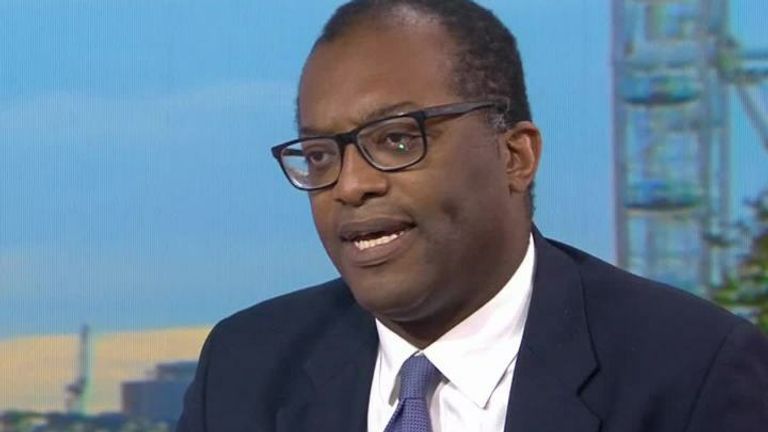Carbon dioxide producer hikes prices under deal to keep supplies going amid gas costs spike
Britain’s main carbon dioxide producer is to hike its prices under a government-brokered deal to keep supplies to key industries going without taxpayer subsidies.
Ministers stepped in last month after a surge in natural gas prices prompted US-owned CF Industries to shut down fertiliser plants that also make 60% of Britain’s CO2 – a key input for sectors from food and drink to nuclear power.
Subsidies said to be worth tens of millions of pounds were used to persuade CF to restart production at one of the plants, at Billingham, Teesside, but that three-week deal is now coming to an end.
Companies that buy CO2 from CF have now agreed to pay it a price “that will enable it to continue operating while global gas prices remain high, drawing on support from industry and delivering value for money for the taxpayer”, the government said.
A trade body representing food and drink manufacturers welcomed the deal to ensure consistent supply in the run-up to Christmas but said the increased cost represented “yet another burden” as it already faced “enormous stresses”
Business Secretary Kwasi Kwarteng said: “Today’s agreement means that critical industries can have confidence in their supplies of CO2 over the coming months without further taxpayer support.”
A spokesman said the rate at which prices would rise under the deal – which runs until January – was “commercially sensitive”.
But last month, environment secretary George Eustice told Sky News that the food industry was likely to have to adjust to an increase of around 400% in the price of CO2.
The deal comes as wholesale natural gas prices remain high, climbing by 7% to 209p per therm on Monday.
That is well below the 355p record level reached last week but several times above the 40p-60p range where gas has traded in recent years.
The government said the deal on CO2 reflected “the vital importance of this material to everything from our nuclear industry to hospitals to the food and beverage industry”.
It also revealed that another producer, Ensus, reopened its Wilton plant last week – which can produce up to 40% of the UK’s CO2 needs – following temporary closure for planned maintenance, further securing supplies.
CF chief executive Tony Will said: “We are pleased to have reached a commercial solution that enables the Billingham complex to continue to operate through January, alleviating near-term CO2 supply concerns in the UK.”
The company said that during the period of the agreement “it is expected that the UK government and industrial gas customers will develop robust alternative sources of CO2 as part of a long-term solution for meeting demand in the country”.
Ian Wright, chief executive of the Food and Drink Federation, said of the deal: “This should ensure a consistent supply through the vital food and drink production period in the run up to Christmas.
“Although welcome news, the increased cost of buying CO2 is yet another burden on the food and drink industry which is already facing enormous stresses.
“This will of course add more pressure on prices for shoppers and diners.”
Natural gas prices have surged across Europe in recent weeks with a series of factors including demand in Asia and a lack of supply from Russia blamed.
Energy intensive industries including the steel sector are asking for government help to support them through the crisis.
Meanwhile a number of small energy suppliers – prevented by the Ofgem price cap from raising charges to customers – have ceased trading.
Sky News revealed over the weekend that another company, BP-backed Pure Planet, was nearing collapse.
Over the weekend, Mr Kwarteng was drawn into an embarrassing row after he told Sky News that he was “speaking constantly” with industry on their energy needs and pricing and was “engaging” with the Treasury on the issue.
A Treasury source told Sky News they are “not involved in any talks” and added that it was not the first time Mr Kwarteng “has made things up in interviews”.
Source: Read Full Article



